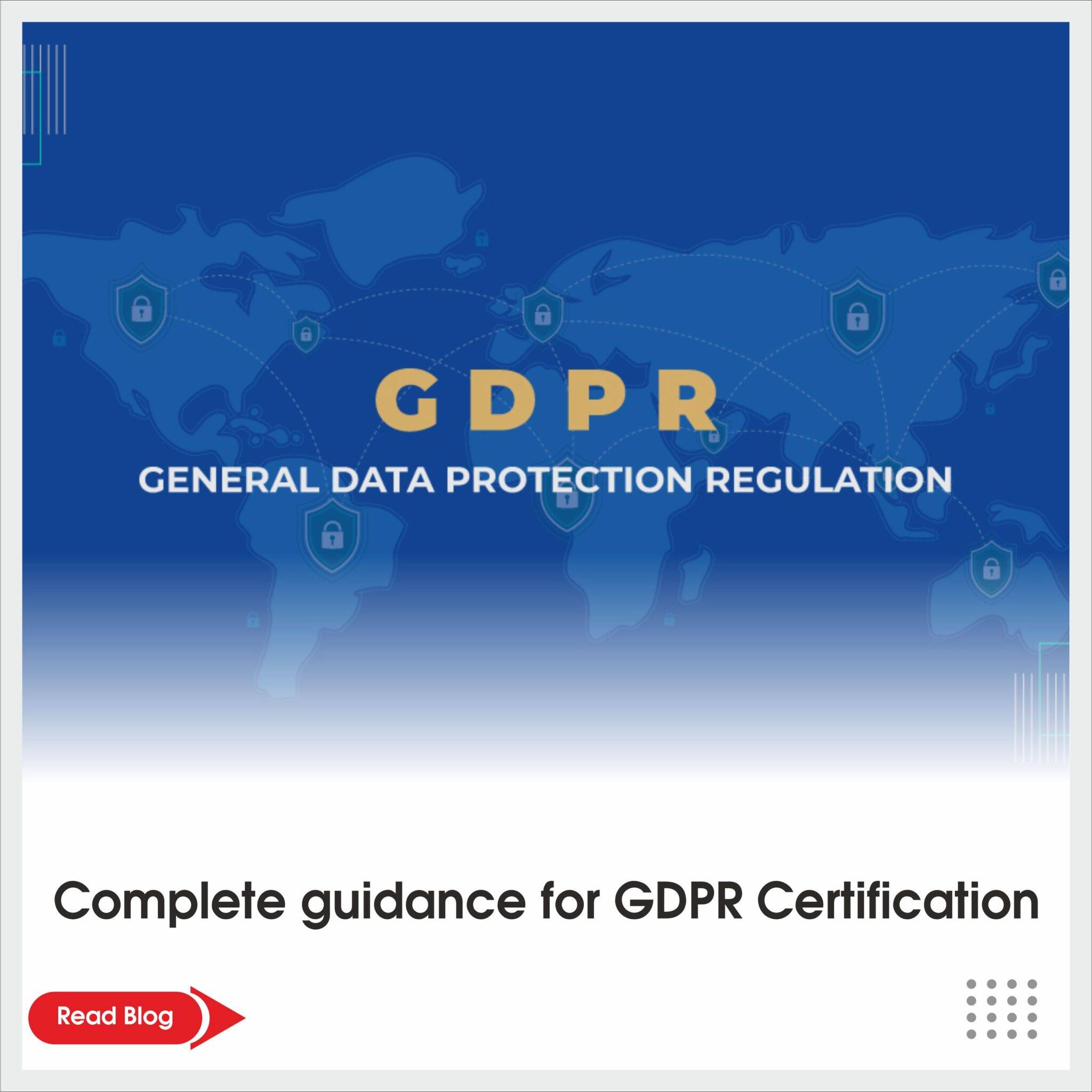General Data Protection Regulation (GDPR) certification helps businesses, meaning they protect European citizens from data loss due to cyber-attacks, terrorism, unethical business practices, etc. GDPR is a required compliance action to do business in the EU or deal with data of citizens from the EU.
What is GDPR certification?
The General Data Protection Regulation (GDPR) is a legal framework that sets guidelines for the collection and processing of personal information from individuals who are residing in the European Union (EU) and outside.
General Data Protection Regulation (GDPR) was passed in the European Parliament in 2016 and put into effect in May 2018. GDPR is the world’s toughest security and privacy law. It aims to provide consumers control of their personal data by holding organizations responsible for the way they handle and treat this information. The GDPR rules apply nevertheless of which website they are based on.
Importance of GDPR certification
With quickly growing cybercrime and data threats, it is very important to consider the GDPR certification for businesses. The increasing number and nature of cyber-crime and data violations has put the industry alert. At present, businesses have been investing to safeguard their customer’s important and personal information.
GDPR or General Data Protection Regulation Certification is one of the best solution providers to protect data from cyber-attacks, threats, etc. It provides many benefits with optimal data protection solutions. The major benefits of the General Data Protection Regulation (GDPR) include improved accountability and safeguarding their client data.
Key principles of GDPR Certification
Seven key principles in GDPR certification are mentioned below;
- Lawfulness, fairness, and transparency
- Purpose limitation
- Data minimization
- Accuracy
- Storage limitation
- Integrity and confidentiality
- Accountability
Lawfulness, fairness and transparency: Processing secret data should be done lawfulness, fairness, and transparency. An individual should be informed how their data is used.
Purpose of limitation: Personal data should be collected only for lawful purposes.
Data minimization: Personal data must be limited to what is needed for the stated goal.
Accuracy: Ensuring that secret data is corrected and up to date is important. Whenever it needs the data should be corrected or deleted without delay.
Storage limitation: To achieve the intended purpose personal data should be Kept only as long as needed due to Storage limitations.
Integrity and confidentiality: It is very important to ensure that personal data is processed securely, it safeguards against unauthorized access or destruction. It is essential to take the required activities to protect personal data from a possible risk that may compromise its confidentiality, integrity, or availability.
Accountability: Companies should acknowledge their data operational activities and show their adherence to the GDPR.
Five Key Benefits of GDPR certification are
1. Enhanced data protection
2. Improved customer trust and transparency
3. Compliance and avoidance of penalties
4. Strengthened security measures
5. Competitive advantage
Enhanced data protection: More focus on data protection helps the business to maintain the privacy and confidentiality of important data.
Improved customer trust and transparency: Transparency is an important feature of GDPR. The regulation commands that the business to be clear and transparent about collecting, saving, and processing personal data. This increased transparency nurtures trust between businesses and their clients.
Compliance and avoidance of penalties: This GDPR certification avoids penalties to safeguard the personal data of their client. GDPR certification is essential not only for maintaining client trust but also it avoiding significant penalties. Therefore, if your company is not compliant, it can result in huge penalties.
Strengthened security measures : GDPR implements robust security measures to protect personal data. Businesses need to assess and upgrade their security protocols constantly ensuring data confidentiality, integrity, and availability.
Competitive advantage: Conformity with this framework can offer a competitive advantage in business. By demonstrating a commitment to protect client data and privacy, businesses can differentiate themselves from competitors. This process increases client loyalty and trust.
Objectives of GDPR certification
Data Protection : To standardize and robust data protection law in the European Union for secure and lawful individual data processing.
Notification of Data Breaches : To need Timely reporting of data breaches to authorities and affected individuals.
Consent : To establish precise needs for receiving and managing individuals’ consent for data processing.
Data Portability : To allow individuals to quickly move their data from one service provider to another provider.
International Data Transfer : To ensure enough protection, regulate the transfer of personal data outside the European Union and EEA.
Conclusion ✅
GDPR helps the customer or client to safeguard their personal or business data. The Business obtains several benefits from implementing GDPR certification. Businesses can establish themselves as responsible and trustworthy organizations in the modern digital environment by embracing and prioritizing data protection.




